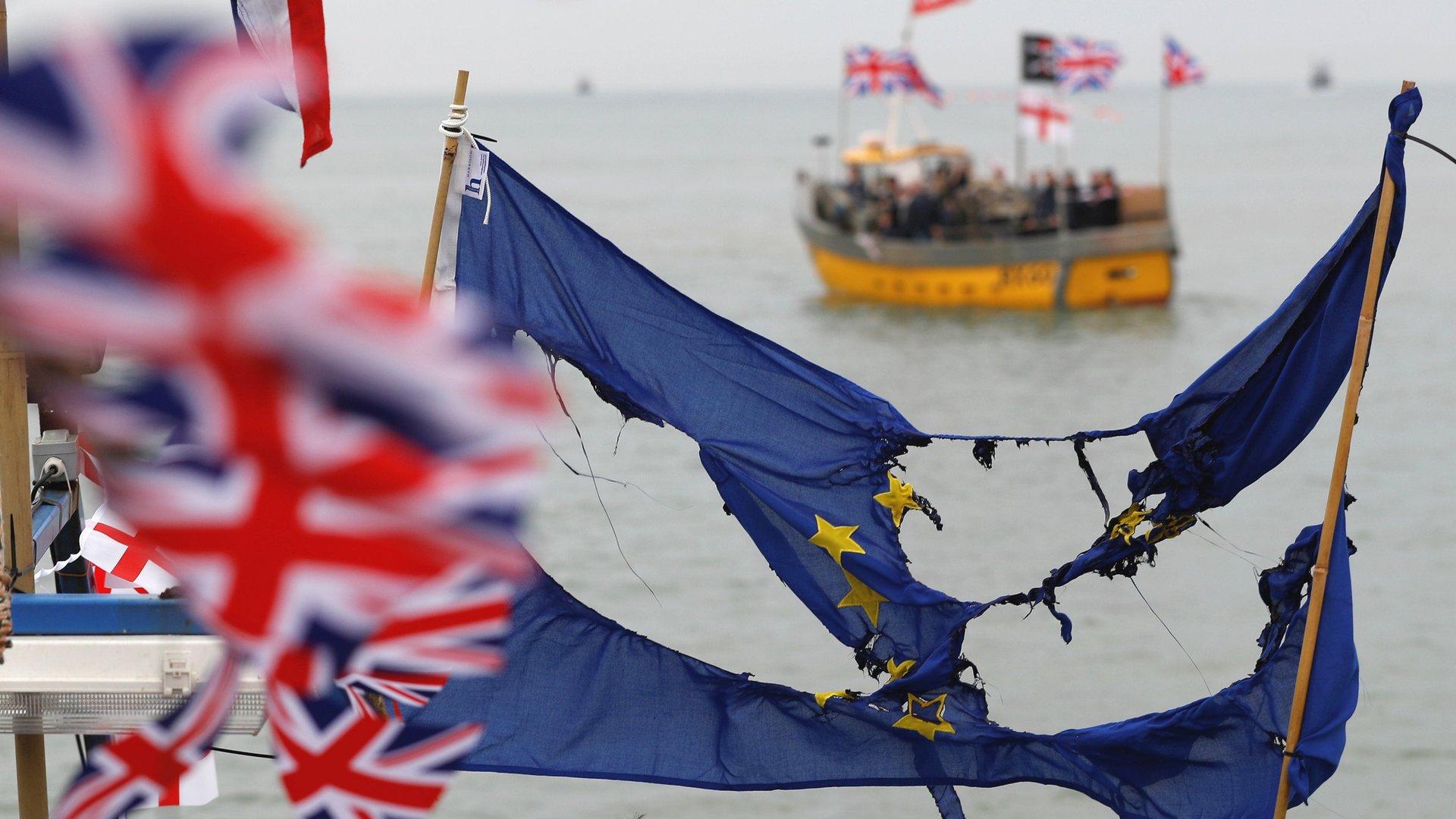Hardline Brexiters are at the heart of the chaos surrounding the UK government
The crisis swirling around the UK government and Brexit talks right now has been touted by some factions as a result of prime minister Theresa May’s weak leadership. However, at the heart of the problem is the fact that the country is being held hostage by hardline Brexit-supporting politicians.


The crisis swirling around the UK government and Brexit talks right now has been touted by some factions as a result of prime minister Theresa May’s weak leadership. However, at the heart of the problem is the fact that the country is being held hostage by hardline Brexit-supporting politicians.
Those members of parliament (MP) aren’t just those who pipped for Brexit. They are ones that want to see a “hard Brexit”—Britain crashing out of the EU’s single market so long as it can control its borders. That inherently means that, regardless of what kind of deal the Conservative-led cabinet tries to thrash out with the bloc, it will be knocked back and hardliners will make it known.
By last night (July 9), three ministers—including Brexit secretary David Davis and foreign secretary Boris Johnson—had spectacularly resigned within the space of 24 hours. There was talk of contagion. At one point, there were even reports that MPs from her Conservative Party had collected enough signatures to force a motion of confidence in her leadership—something that very well could have precipitated Britain’s third general election in under 5 years.
Although it has caused a headache, May was quick to capitalize on the fact that two of her biggest problems extricated themselves from her inner circle; she ceremoniously replaced Davis and Johnson with more amiable substitutes.
But the chaos surrounding the government will not die down any time soon—the contingent supporting a hard Brexit is more angry than ever. On Friday, her cabinet ostensibly agreed to pursue a close post-Brexit trading relationship with the EU. But now her plans are on the edge of collapsing before they’ve even made it to the EU negotiating table.
Sure, three of her most pro-Brexit ministers—Andrea Leadsom, Chris Grayling and Michael Gove—went on the airwaves to defend the agreement. But MPs from the rival Labour Party attended a briefing on its specifics—a sure sign that May thinks they may be needed to get it passed through parliament.
This is because, even though these hardliners don’t yet have the 48 signatures needed to call a vote on her leadership (and certainly not the 159 needed to actually oust her), May’s cobbled-together majority in the House of Commons is so slim that even a handful of them could derail the process.
Though negativity about immigration has fallen sharply in Britain in recent years, for this handful of MPs, leaving the EU is all about controlling immigration—and not much else.
Jacob Rees-Mogg, the staunchest of Brexit hardliners, went so far as to say that May’s Chequers deal is worse than a no-deal hard Brexit, something that would see Britain crashing out of the EU with no trade deal and the rights of EU citizens within the UK disappearing overnight (and vice-versa).
No deal is better than a bad deal and Chequers looks pretty poor. https://t.co/I5aQK2HP0t
— Jacob Rees-Mogg (@Jacob_Rees_Mogg) 9. Juli 2018
That makes negotiating a deal with the EU very difficult: The bloc has said that Britain can’t pick and choose the “four freedoms” (free movement of goods, capital, services, and people) and have an “a la carte” Brexit. If immigration is to be stopped or controlled, then Britain will have to accept a much weaker trade arrangement than it currently has.
And that, in turn, would have serious consequences for Britain’s economy, as banks, think tanks, lobby groups and the country’s largest firms have consistently warned. It would also necessitate the imposition of a border in Northern Ireland—a red-line issue for the EU, and something May has committed to avoiding.